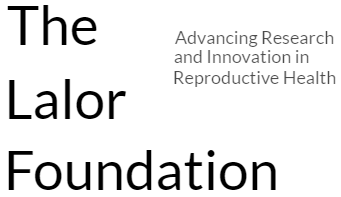 The Anna Lalor Burdick Program seeks to empower young women through education about healthy reproduction in order to broaden and enhance their options in life.
The Anna Lalor Burdick Program seeks to empower young women through education about healthy reproduction in order to broaden and enhance their options in life.
The program focuses particularly on young women who have inadequate access to information regarding sexual and reproductive health, including comprehensive and unbiased information on contraception and pregnancy termination.
The Anna Lalor Burdick (ALB) Program supports programs that offer sexual and reproductive health education to young women. It is interested in programs serving young women who are disadvantaged by poverty, discrimination, geographic isolation, lack of comprehensive sex education, hostile public policy, or other factors leading to inadequate sexual and reproductive health.
The ALB Program is particularly interested in supporting new programs or initiatives, or innovations in successful programs. Programs at new or small organizations, including those with a grassroots base, that are capable of delivering excellent services will also be considered.
The ALB Program typically does not support general operations, ongoing programs, or existing staff positions.
Programs should
- have a comprehensive approach to SRH education that includes unbiased information on all options
- include novel ideas or innovative methods of delivering information
- define clear goals and intended outcomes as well as a feasible plan to assess impact and success
- be exemplars for replication if successful
- be economically sustainable if successful
Programs that focus exclusively on the following are generally not considered:
- HIV/HPV/sexually transmitted disease prevention
- one-time direct supply costs (e.g. distribution of menstrual products, LARCs, or contraception)
- menstrual health or hygiene
- maternal health, infant health, or postpartum issues
- advocacy on behalf of teen parents
However, programs that incorporate these issues as part of a comprehensive strategy for enhancing young women’s reproductive freedom and options will be reviewed, on a case-by-case basis.
Grants are NEVER made
- to individuals, or for individual research projects and scholarships
- for endowment or major capital support
- to crisis pregnancy centers (CPCs)
- for abstinence-only programs, or programs that fail to offer unbiased information on all options
Application Procedures
The first step in applying for a grant is to submit a concept paper. Instructions for preparing an online concept application can be found on the Application Instructions page of this website. Concept papers must be submitted online.
Concept Paper Deadlines
- May 1
- November 1
The online portal will open one month prior to each concept paper deadline.
Applicants will be informed within 6-8 weeks of the deadline date of the trustees’ decision regarding the concept paper. A small number of applicants will be invited to submit a full proposal. Those invited will receive a full set of instructions to assist in the preparation of the proposal.
See website for more info


Leave a Reply